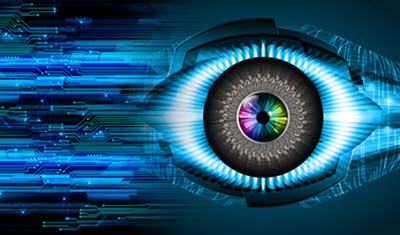EMDR/Trauma Therapy
 OK. Just so you know, here’s what EMDR stands for:
OK. Just so you know, here’s what EMDR stands for:
Eye Movement Desensitization and Reprocessing.
Now feel free to forget it. It’s not important what the letters stand for or what the words mean. It’s not even important how it works. What’s important is what it does.
And what it does is amazing.
Let me give you some examples…
Ellen was in her 60s when she came to see me. Her mother had died a few years before, and her father’s health had recently deteriorated. With her siblings living out of state, Ellen was the only one to care for him.
But every time she answered his phone call or bought some small item he needed, her anger and resentment grew.
The problem was her father was not a nice man. Never had been. He verbally and emotionally abused Ellen relentlessly throughout her life. Nothing she did was good enough. And from an early age, nothing he did could crush her determination to never cry in front of him.
Once, when she was about 10, her ability to resist his taunts infuriated him. So he picked up her dog, lifted it over his head and smashed it to the ground, killing it instantly. She still hated him for that 50 years later.
With EMDR therapy, Ellen let go of decades of rage, guilt and regret within just a few months.
Ellen stopped blaming herself for her beloved pet’s death. She accepted – not just intellectually, but also emotionally – that there was nothing she could or should have done that would have saved her dog.
As a result, Ellen’s relationship with her father transformed completely. No, it never became close, but it no longer consumed her with anger and resentment. She continued to care for his physical needs, but she did so on her terms, not his.
She finally broke free of his abuse. When he died several years later, she had no regrets and no bitterness. She was healed.
Tim, on the other hand, made a horrible mistake.
When Tim was 20 years old, he was driving home from a bookstore on a back road he took every day. But there had been new construction in the area, and he didn’t notice the new stop sign.
Tim never slowed down as he entered the intersection. His black SUV plowed right into the side of a tiny yellow convertible and killed the 14-year-old girl in the passenger seat.
Remarkably, the girl’s mother, a devout Christian, forgave Tim and even testified on his behalf at his trial, most likely saving him from going to jail.
In the 19 years since the accident, however, Tim imprisoned himself with guilt, blame and remorse.
The mother stayed in touch as Tim finished college, got married, had a child of his own and moved across the country. She encouraged him to forgive himself, but that was something he could never do.
In fact, Tim thought about the accident every day of his life. Once while driving he hit a badger, causing nightmares for weeks. Even seeing car crashes and violence in movies triggered flashbacks of blood pouring out of the teenage girl’s neck.
Tim’s father lived near the accident site, so Tim stopped visiting. There was a cross by the side of the road now. Two orange flags were attached to the stop sign so other drivers wouldn’t miss it. This was too much for him to handle.
As the years passed, Tim expected the nightmares to end. Instead, the accident became more intense, more vivid and more disturbing. It seemed everything triggered painful memories of that day.
Until EMDR.
With just eight sessions, Tim was able to visualize the accident from a different perspective. He stopped taking antidepressant medications. He stopped drinking alcohol to numb the memory. He had gone a week without thinking of the accident. He realized with certainty that he was going to be OK.
Can EMDR help you?
 EMDR initially was designed to help victims of major trauma, specifically war veterans, heal from their experiences.
EMDR initially was designed to help victims of major trauma, specifically war veterans, heal from their experiences.
In recent years, however, EMDR has successfully treated a wide variety of much smaller – but still potentially devastating – traumas experienced by nearly everyone. Examples include being bullied in school, watching (or hearing) your parents fight as a child, losing a job or ending a marriage.
These events might seem minor compared to acts of war, car crashes or physical attacks, but they often have significant and long-lasting negative impacts that rival – and sometimes even exceed – those of major traumas.
Smaller but more common traumas can wear us down emotionally, limit our enjoyment in life, make us repeat the same mistakes, or keep us stuck in unhappy relationships and unfulfilling jobs.
If any of the following problems sound familiar, EMDR could be part of the solution:
- You’ve already tried therapy in the past with limited, if any, success.
- You have a pattern of unsatisfactory romantic relationships.
- You’re “running on empty” without any true enjoyment in life.
- You keep repeating the same mistakes even though you know better.
- You feel angry and resentful much of the time.
- You can’t move past your childhood.
In other words, you’re tired of talking about it; you just want to get over it.
If you’d like more information about how EMDR might help you, give me a call at 720.837.3466 for a free 20-minute consultation, fill out the form below or e-mail me.
Don’t wait another day. It’s your turn now. It’s time to heal.
